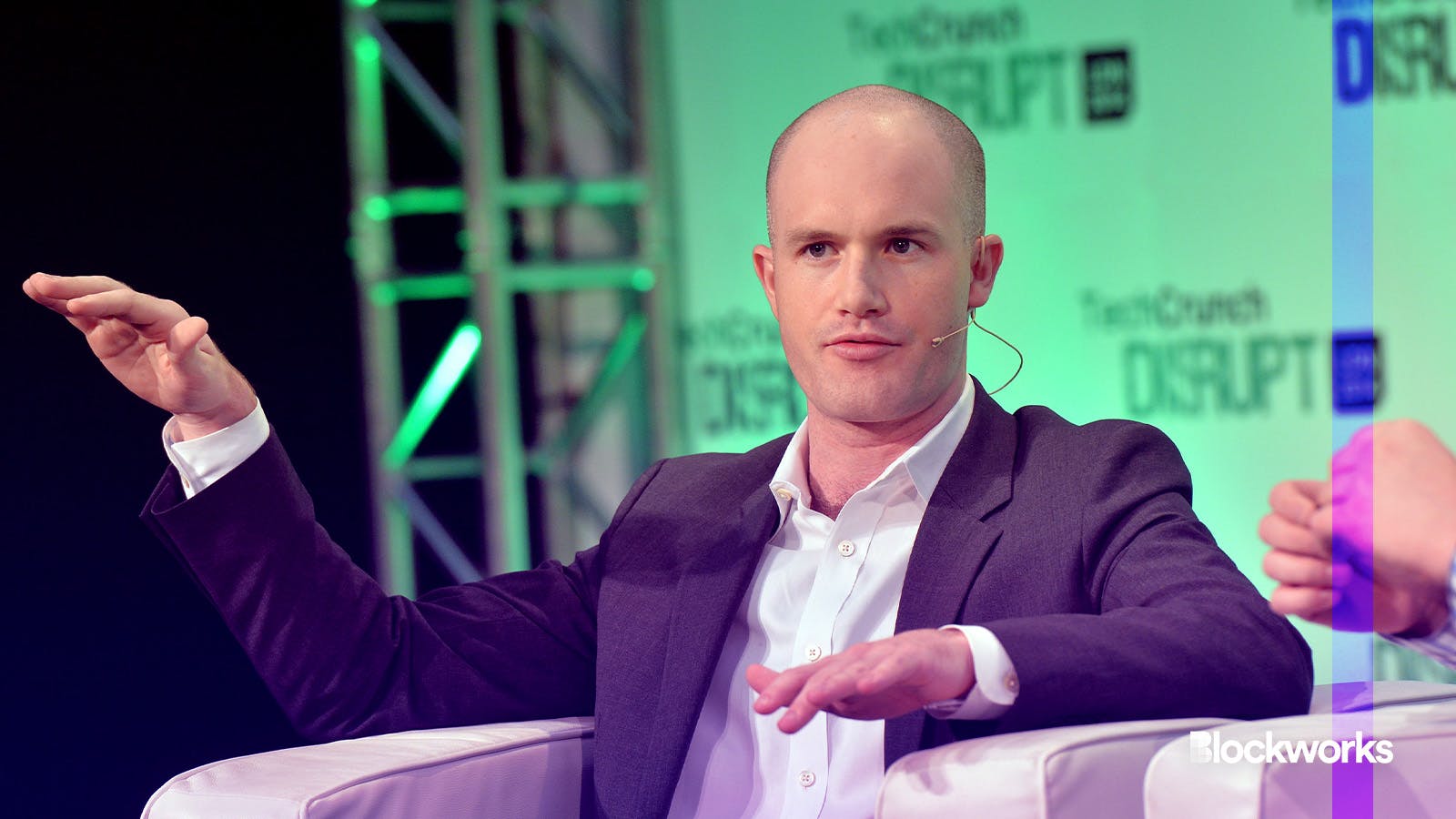US judge questions SEC limits during Coinbase hearing
A federal judge heard oral arguments from the SEC and Coinbase Wednesday in the exchange’s move to dismiss the case against it

Coinbase CEO Brian Armstrong | Anthony Harvey/Getty Images for TechCrunch/"518392245AG021_TechCrunch_D" (CC license)
A federal judge expressed fear Wednesday that the US Securities and Exchange Commission has cast too wide a net with its recent interpretation of securities laws.
Counsel from both sides in the SEC’s case against Coinbase appeared before a federal judge in Manhattan Wednesday to argue why the case should or should not continue.
The hearing, which lasted nearly five hours, will decide if the court grants or dismisses Coinbase’s motion for judgment. This motion, filed in August, seeks to dismiss the charges.
Read more: Coinbase pushes to dismiss SEC lawsuit
“I am concerned that what you’re asking for is too broad,” Presiding Judge Katherine Polk Failla told SEC attorney Patrick Costello in response to the agency’s proposed implementation of the Howey test, the Supreme Court-determined standard for identifying an investment contract.
The SEC in June sued Coinbase for allegedly operating as an unregistered broker, exchange and clearing agency. The agency claimed 13 cryptocurrencies available on Coinbase are securities: SOL, ADA, MATIC, FIL, SAND, AXS, CHZ, FLOW, ICP, NEAR, VGX, DASH and NEXO. The SEC argues that because token holders buy into a common enterprise and have an expectation that the ecosystem’s success will generate profits, such tokens are securities.
Under the SEC’s logic, purchasers of these crypto assets could bring action against the issuers under securities laws, opening up the potential for countless private actions, Failla said.
“We’re all just afraid that you have so few limitations,” Failla added, noting that, under this logic, collectables or commodities could be regulated as securities.
Costello countered that when buying a collectible, for example a baseball card, the purchaser is not buying into a “common enterprise” and there is no one person or group of people whose actions impact the value of that card.
In response to the SEC’s definition, Coinbase lead attorney William Savitt argued that the baseline minimum characteristic for an asset to be deemed a security is the existence of a mechanism of enforcement for the investment contract. According to Savitt, purchasing an asset based on positive statements from a developer team at a protocol is not enough — there also has to be an agreement that creates enforceable rights for the holders.
Read more: Coinbase says it will challenge SEC crypto rulemaking rejection
“Everybody has always known that investment contracts have to have contracts,” Savitt said, adding that the SEC had never asserted otherwise until it began to bring enforcement actions against crypto firms.
Coinbase’s team also made an appeal to invoke the major questions doctrine, which states that courts will not interpret congressional law as allowing agencies to rule on issues of “major” political or economic significance. The doctrine was recently cited in the Supreme Court 6-3 decision to strike down the Biden administration’s student loan forgiveness program.
Failla noted that in her 10 years on the bench, she had never dealt with the major questions doctrine.
“I’m just not sure the crypto industry is so major or extraordinary that I have to find it here,” Failla said to Coinbase lead attorney Sarah Eddy, adding that she does not want “to take power I don’t have, to stop something I shouldn’t.”
Eddy rejected Failla’s fears, pointing out that SEC Chair Gary Gensler himself has acknowledged the size and impact of the cryptocurrency industry, and the major questions doctrine has historically been applied in cases impacting far less people and in markets much smaller.
After questioning each side for about two hours and spending an additional half hour on “closing statements,” Failla said while the session was productive in some ways, she is still left with questions. She did not offer a ruling on the motion, but informed counsel that she will be in touch when she can.
“I can’t say there’s an argument you haven’t made to me,” Failla told both parties. Now she must decide which is more reasonable.
Failla opted to open the hearing to the public outside the courtroom via a telephone conference. Nearly 500 participants joined the call before the hearing even kicked off.
Failla’s ruling, which could take days to months to deliver, will either grant or deny Coinbase’s motion in part or in full. If the case is not fully dismissed, both parties will move on to the discovery process.
Get the news in your inbox. Explore Blockworks newsletters:
- The Breakdown: Decoding crypto and the markets. Daily.
- 0xResearch: Alpha in your inbox. Think like an analyst.






